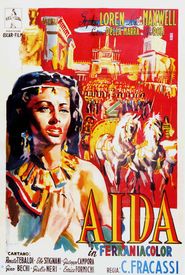Renata Tebaldi, a celebrated Italian lirico-spinto soprano, was born on February 1, 1922, in Pesaro, Italy, a city situated on the Adriatic coast, renowned for its rich history, cultural heritage, and stunning architecture.
Her father, Teobaldo Tebaldi, was a talented cellist, whose passion for music was evident in his dedication to the craft, and her mother, Giuseppina Barbieri, was a compassionate nurse, whose selfless work in the medical field was a testament to her unwavering commitment to helping others.
Although her parents had separated before her birth, Renata Tebaldi grew up with her mother in her maternal grandparents' home in Langhirano, a picturesque town in the province of Parma, Italy, known for its rolling hills, charming countryside, and rich gastronomic tradition.
Tebaldi's life took a dramatic turn at the tender age of three, when she was struck by the debilitating disease of polio. This life-altering event, however, would ultimately prove to be a catalyst for her future success, as it sparked within her a profound interest in the world of music.
As a young child, Tebaldi's love for music was nurtured by her involvement with the church choir in Langhirano, where she would sing alongside her peers and develop her vocal skills. Meanwhile, her parents recognized the importance of providing her with formal training, and thus arranged for her to receive piano lessons from the esteemed Giuseppina Passani in Parma.
Under Passani's guidance, Tebaldi's talent was further refined, and she was eventually encouraged to pursue a career in classical music. This led to her being admitted to the prestigious conservatory of Parma at the age of 17, where she would go on to study voice with the renowned Italo Brancucci.
It was during her time at the conservatory that Tebaldi's remarkable talent and dedication would truly begin to shine, laying the foundation for a distinguished career that would take her to the world's most renowned opera houses and concert halls.
Tebaldi's formative years as a performer were characterized by a series of notable appearances in numerous Italian cities, including the charming town of Rovigo, the cultural hub of Parma, and the historic port city of Trieste. It was in 1944 that she took to the stage for the very first time, assuming the role of Elena in the esteemed opera Mefistofele by the renowned Italian composer Boito. This debut marked the beginning of a long and illustrious career, during which she would go on to captivate audiences with her talents in a wide range of productions, including the beloved opera La bohème, the charming comedy L'amico Fritz, and the dramatic masterpiece Andrea Chénier.
Notably, it was in 1946 that Tebaldi's career experienced a significant milestone, as she underwent a crucial audition in front of the renowned maestro Arturo Toscanini, who was so impressed by her exceptional vocal abilities that he bestowed upon her the highest of praise, affectionately referring to her voice as "la voce d'angelo", or in English, "the voice of an angel".
Subsequently, Tebaldi's remarkable talent earned her the esteemed privilege of making her debut at La Scala, Italy's iconic opera house, where she took to the stage to perform two notable pieces: the sublime "Prayer" from Gioachino Rossini's majestic opera "Mosè in Egitto", and the soprano part in Giuseppe Verdi's awe-inspiring "Te Deum".
Tebaldi's artistic portfolio gradually expanded to encompass a diverse range of operatic roles, showcasing her versatility and mastery of the art form. Her repertoire, now enriched by the inclusion of works by iconic composers such as Verdi and Puccini, further solidified her reputation as a leading soprano of her time.
Throughout her illustrious career, Tebaldi had the privilege of gracing the stages of some of the world's most prestigious opera houses, including the Metropolitan Opera, La Scala, and San Carlo. Her performances, marked by her distinctive vocal prowess and unparalleled stage presence, left a lasting impression on audiences and critics alike.
In particular, Tebaldi's interpretation of verismo roles, characterized by their intense emotional depth and dramatic complexity, earned her widespread acclaim and recognition. Her ability to convey the raw emotions and psychological nuances of these characters, coupled with her technical mastery of the operatic art form, cemented her status as one of the greatest performers of her generation.
Italian conductor Riccardo Muti, a renowned expert in the world of opera, paid tribute to Tebaldi's extraordinary talent, describing her as "one of the greatest performers with one of the most extraordinary voices in the field of opera."
Tebaldi's illustrious career was characterized by an impressive array of accolades and prestigious awards, with the esteemed title of Cavaliere di Gran Croce OMRI serving as a testament to her extraordinary talent and dedication to her craft. This remarkable soprano's life came to a close on December 19, 2004, yet her enduring legacy as one of the most celebrated and revered opera singers of the 20th century continues to inspire and captivate audiences to this very day.














